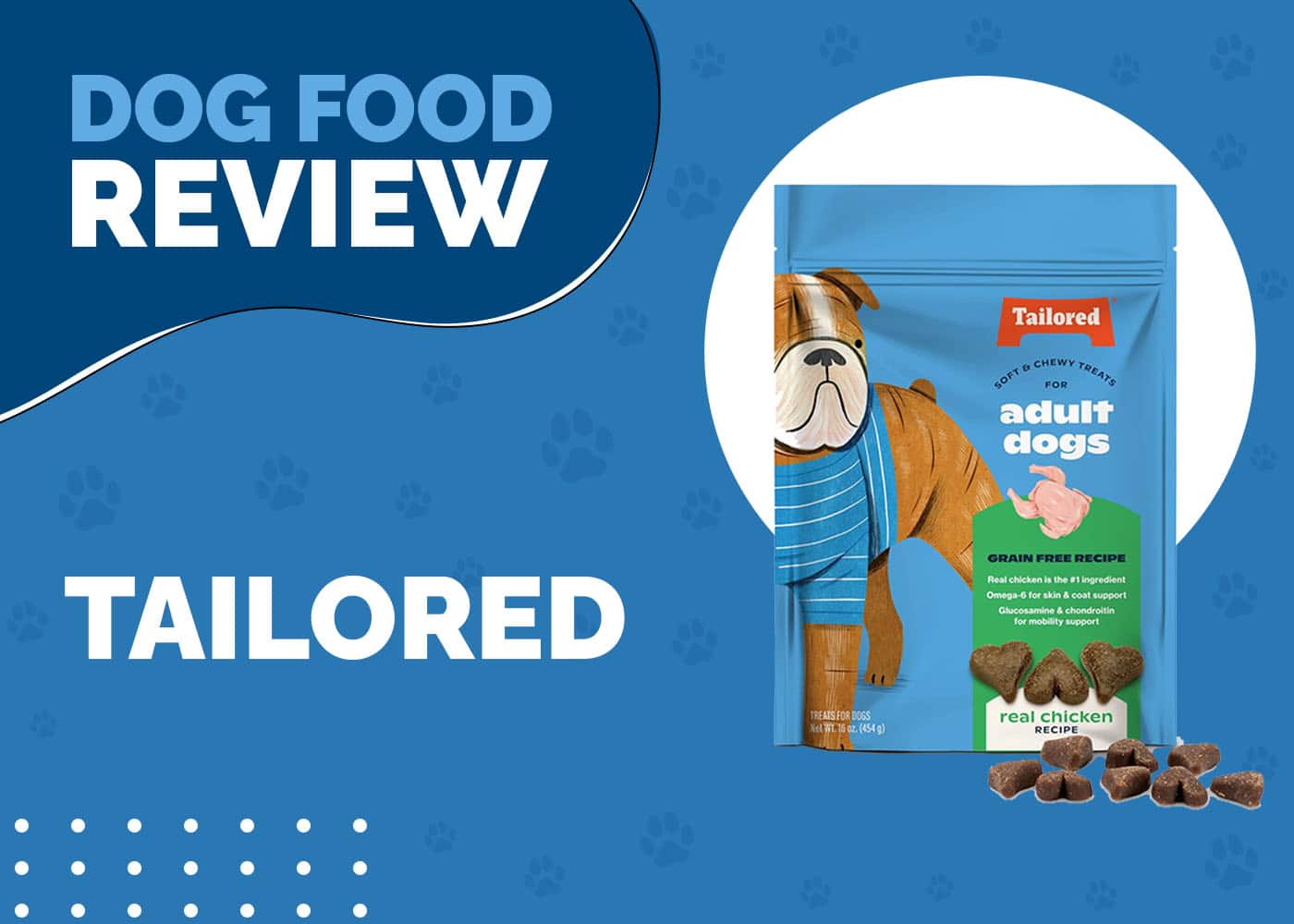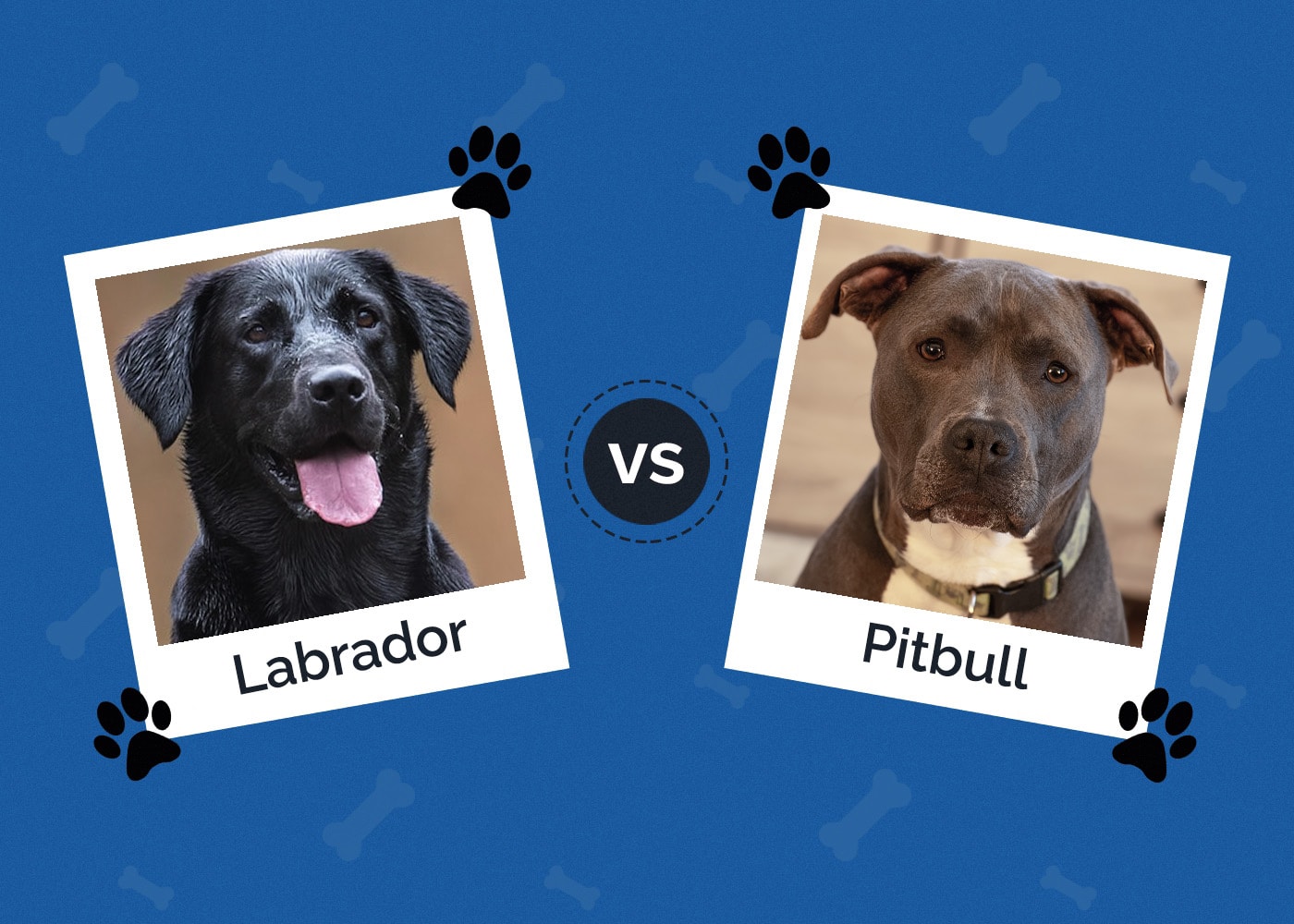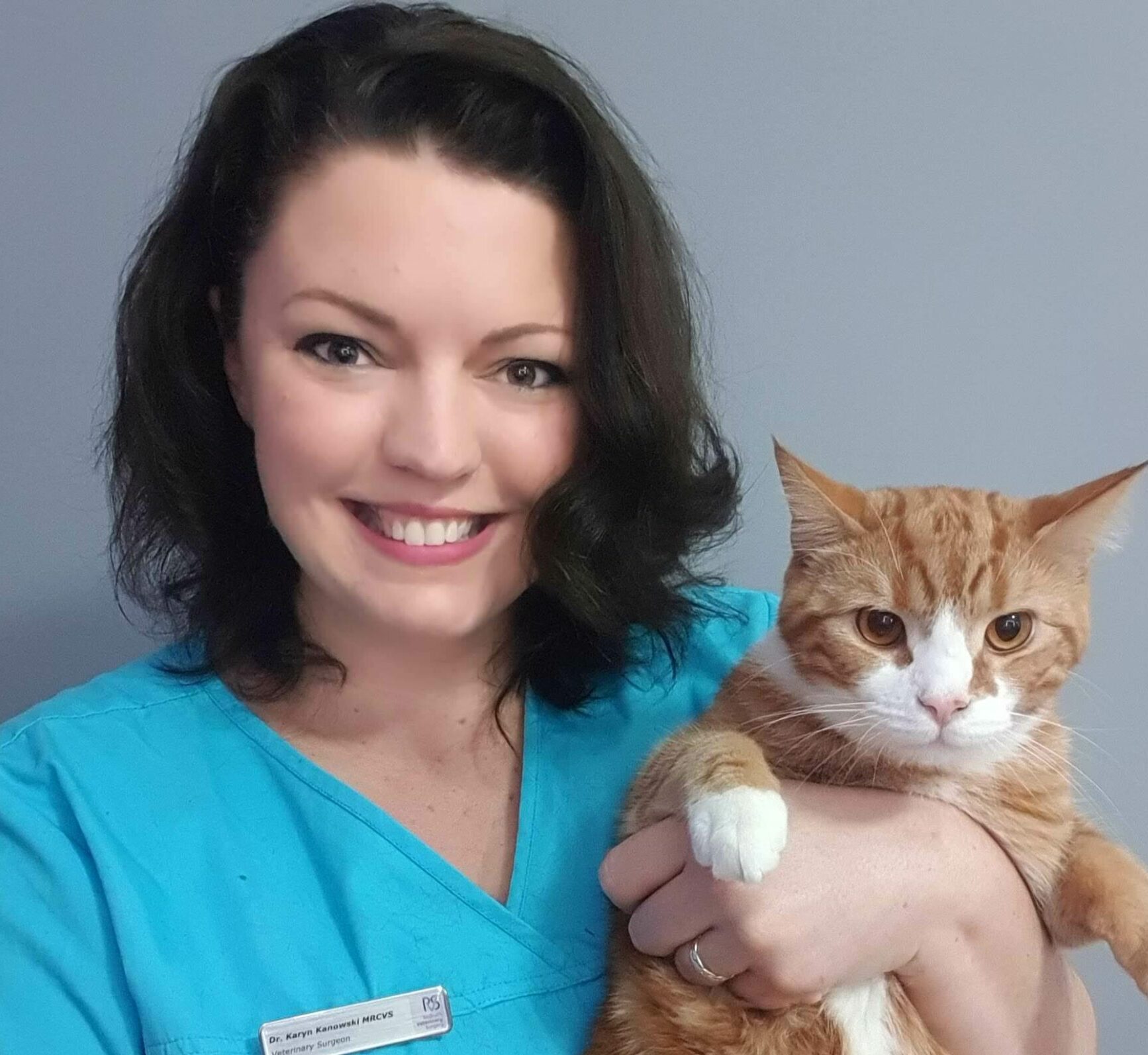Cavapoo vs Goldendoodle: The Differences (with Pictures)
Updated on
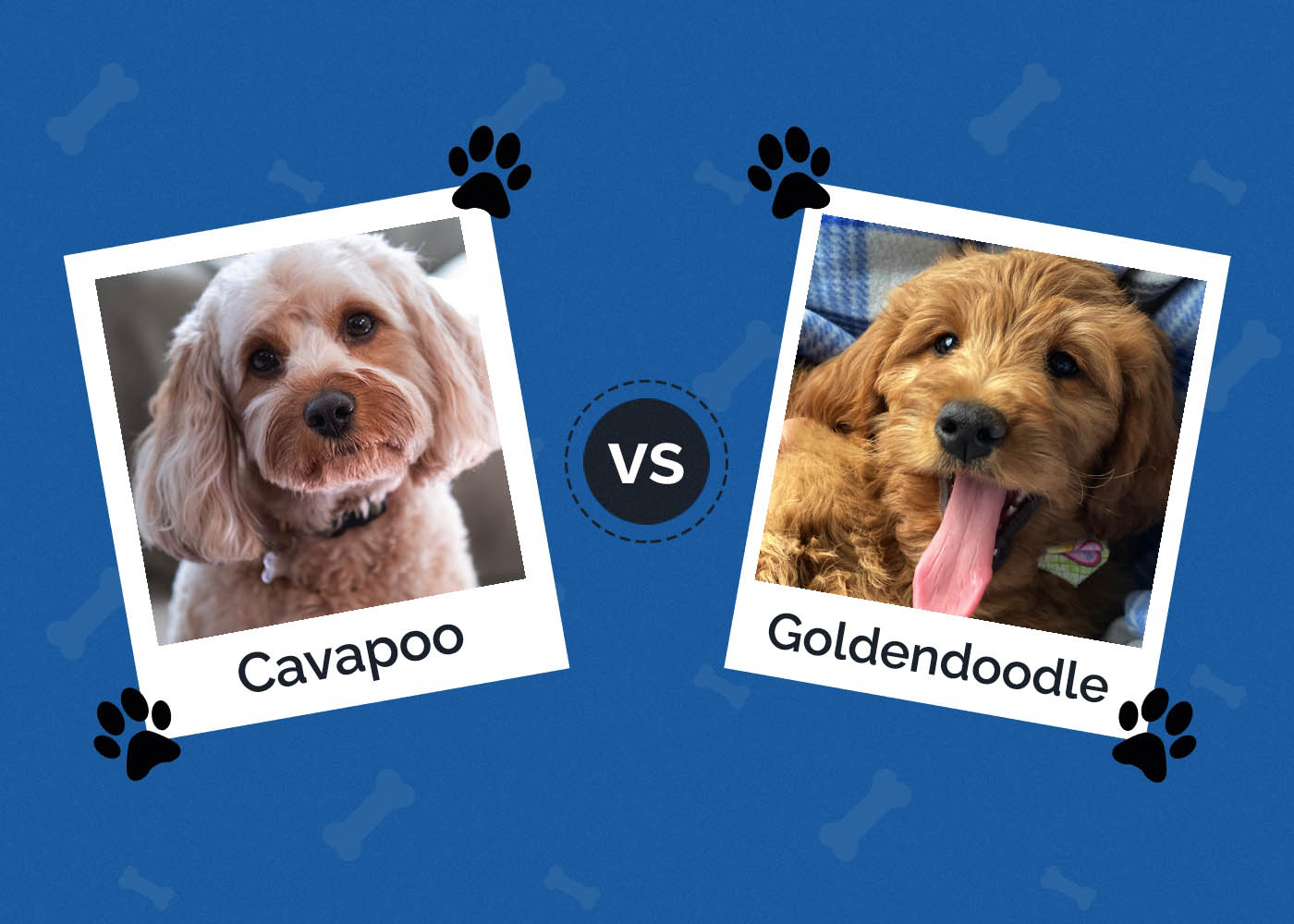
Click to Skip Ahead
Choosing a particular dog breed has never been easy. It gets even harder when you’re trying to decide between two amazing breeds that are beyond adorable. This is the case when it comes to the Cavapoo and Goldendoodle. Both of these dogs have traits that make them the perfect dog. They are both loving and eager to spend time with their owners. The key is choosing the dog that best suits your lifestyle. Let’s take a look at the differences between the Cavapoo and Goldendoodle so you can decide which one is best suited for you and your situation.
Visual Differences

At a Glance
- Average height (adult): 9–14 inches
- Average weight (adult): 8–20 pounds
- Lifespan: 12–15 years
- Exercise: Up to 1 hour a day
- Grooming needs: Moderate
- Family-friendly: Yes
- Other pet-friendly: Yes
- Trainability: Intelligent, friendly, adaptable, and playful
- Average height (adult): 20–24 inches
- Average weight (adult): 50–90 pounds
- Lifespan: 10–15 years
- Exercise: 1–2 hours a day
- Grooming needs: Low
- Family-friendly: Yes
- Other pet-friendly: Yes
- Trainability: Intelligent, loyal, playful, affectionate, social

Cavapoo Overview

First up, let’s take a look at the adorable Cavapoo. These small dogs do best as family pets or companion animals. This designer doggy mix is created by breeding the sweet-natured Cavalier King Charles Spaniel and the highly intelligent and beloved Poodle. We aren’t sure when this mixed breed first appeared, but we do know it was most likely in the United States. Here, the parent breeds are among the most popular. You may also hear people calling these little cuties Cavadoodles in certain circles.
Personality / Character
When bringing home a Cavapoo puppy you may notice a lot of energy. This is normal for all puppies. As these cuties grow, however, this breed is known to mellow a bit. Normally, the Cavapoo is a calm and docile breed. Your Cavapoo’s personality and character will depend a lot on you, however. If you like to spend time at home, lounging on the couch with the family, your pooch will too. If you live a life on the go, your pup will easily adapt and be by your side.
They are a clingy-type dog breed and will prefer being with you and the family more than anything. They can be very social and are known to do well with other pets, children, and even strangers when socialized young. You should also keep in mind that these are very gentle-natured dogs. Harsh words and punishment can be quite detrimental to their mental health.

Exercise
Poodles can be energetic dogs if their owners let them. The Cavalier, not so much. This parent breed of the Cavapoo prefers to be a couch potato. If you want your dog to be active, you’ll need to put in the effort. Whether you want an adventurous pup or a homebody, the fact remains that every dog needs some exercise. It is best to take your Cavapoo on several walks a day to ensure they get enough exercise to keep their body in proper shape.
Training
The Cavapoo has the potential to be a slow learner when it comes to training. This doesn’t mean they can’t be trained. Instead, it shows a need for constant work, starting as soon as you bring your pup home. Using positive reinforcement is the best way to get results from training with this breed. You’ll also notice that treats work well but you may need to avoid treats at other times. This will help your Cavapoo associate the treats as a reward for their training achievements.
Health & Care
Another reason you should limit treats for your Cavapoo is their tendency to gain a bit of extra weight. As a puppy, you should offer your pet three or four small meals a day. The food should be high-quality and designed for puppies. As your Cavapoo grows, adjust the food to match its life stage. You’ll also adjust the feeding amount to a larger meal two times per day.
Other than obesity, your Cavapoo will be prone to the same health issues as their parent breeds. To stay on top of this and keep your dog healthy, you should visit the veterinarian when you bring your puppy home. After this, follow your veterinarian’s instructions and recommendations when it comes to vaccine schedules and checkups. This is the easiest way to ensure your Cavapoo stays healthy and that conditions are caught promptly.

Suitable for: Families and Singles Looking for a Companion
The Cavapoo is an adorable and loving dog breed. Not only do they want to spend time curled up on your lap or at your side, but they want to take part in whatever the family is doing. One thing you will need to remember is these dogs get very attached. This can often lead to separation anxiety if you’re away for long periods. Before bringing a Cavapoo into your home, make sure you or the family has the time these little ones will need.
Goldendoodle Overview

Next up is the amazing Goldendoodle. These gorgeous designer dogs are a mix of two extremely popular and well-loved dog breeds, the Poodle and the Golden Retriever. While Goldendoodles became popular in the 1990s when everyone was falling in love with Poodle mixes, it’s believed this crossbreed has been around since the 1960s. The loyal, loving nature of this breed makes it the perfect breed for families with children or those who are simply seeking a companion to adventure with. The high intelligence of this breed makes them ideal for work as service animals or search and rescue dogs.
Personality / Character
The Goldendoodle is a social dog that usually gets along with everyone, even other animals in the house. These dogs love being around their owners and are very loyal. They are gentle with children and are ideal family dogs. Goldendoodles are highly intelligent. Considering the parent breeds, this is understandable. You’ll also notice these little dogs aren’t aggressive, don’t bark much, and aren’t the best guard dogs. However, if you want an energetic pooch that will stay by your side no matter what you’re doing, this could be the ideal dog for you.
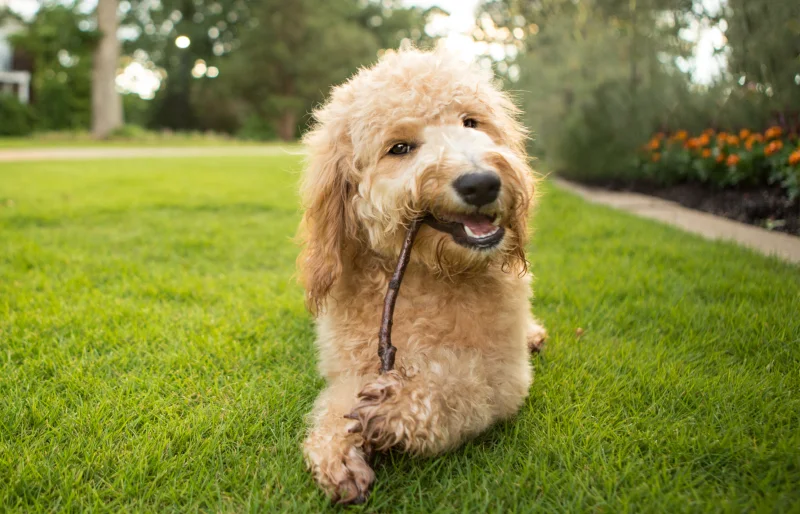
Exercise
As we mentioned, Goldendoodles are more energetic than the Cavapoo. This means you’ll need to devote between 1–2 hours per day to exercise, training, and playtime. Games like frisbee and fetch not only let them burn off energy but also helps keep these highly intelligent pooches mentally stimulated. Another thing a Goldendoodle will love is going for a swim. Both Poodles and Golden Retrievers are fans of the water so it isn’t surprising that splashing and swimming can keep a Goldendoodle occupied throughout the day.
Training
Like any dog, a Goldendoodle should start training and socialization early in life. Luckily, training these dogs is easy. By using positive reinforcement in training, a Goldendoodle can be taught commands and tricks. This is why they are often used as service animals and are ideal for inexperienced dog owners. Never use harsh methods with these dogs, however. Goldendoodles bond deeply with their owners. Harsh words or punishment can damage that relationship and make things difficult around the home.
Health & Care
A Goldendoodle puppy should be fed age-appropriate, high-quality puppy food. Providing 3 to 4 small meals a day will help ensure your Goldendoodle is getting enough food. As your pooch grows, its food needs will as well. Your veterinarian can help with serving sizes, but feeding will decrease to once or twice a day as your dog ages. Always ensure foods are age-appropriate so your Goldendoodle is getting the vitamins, minerals, and nutrients needed to be happy and healthy.
Overall, the Goldendoodle is a healthy dog breed. These dogs get the advantage of hybrid vigor but are still susceptible to certain conditions thanks to their parent breeds. By starting trips to the veterinarian early in life to provide your Goldendoodle with all the necessary vaccinations and checkups needed, they should live a long, happy life by your side.

Suitable for: Families or Singles with Room to Play
Yes, Goldendoodles are ideal for both families and singles. The key is to ensure you can keep up with the exercise and training these dogs need to stay healthy. You’ll also find that Goldendoodles, like Cavapoos, are prone to separation anxiety. If no one will be home to spend time with these dogs throughout the day, arrangements should be made. These social pooches need interaction. If you can’t devote time to these loyal, loving, and energetic dogs, they may not be the breed for you.
Which Breed Is Right for You?
If you haven’t noticed, there are more similarities between the Cavapoo and Goldendoodle than meets the eye. Yes, both dogs share a parent breed, the Poodle, but they are also both loving, intelligent, and social dogs. You’ll find that the biggest differences between these breeds are the sizes and energy levels.
If you are looking for a companion animal or one that will spend leisurely time hanging out with the family, the Cavapoo could be your perfect pet. For families with active children or singles that stay on the move, the Goldendoodle is the energetic and social pal you’ve been looking for.
The biggest thing to remember when it comes to both of these dog breeds is time. Cavapoos and Goldendoodles crave the attention of their owners. If they don’t get it, separation anxiety is a real issue. Whichever breed you choose for your lifestyle, make sure you dedicate plenty of time and love to your new best friend.
Featured Image Credit: (L) Steven B Gold, Shutterstock | (R) cine-nomadic, Shutterstock


